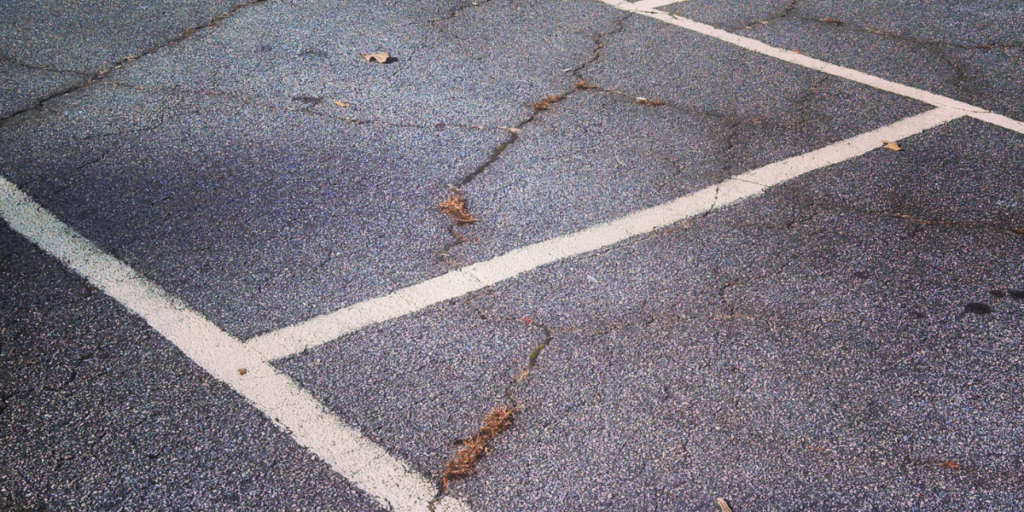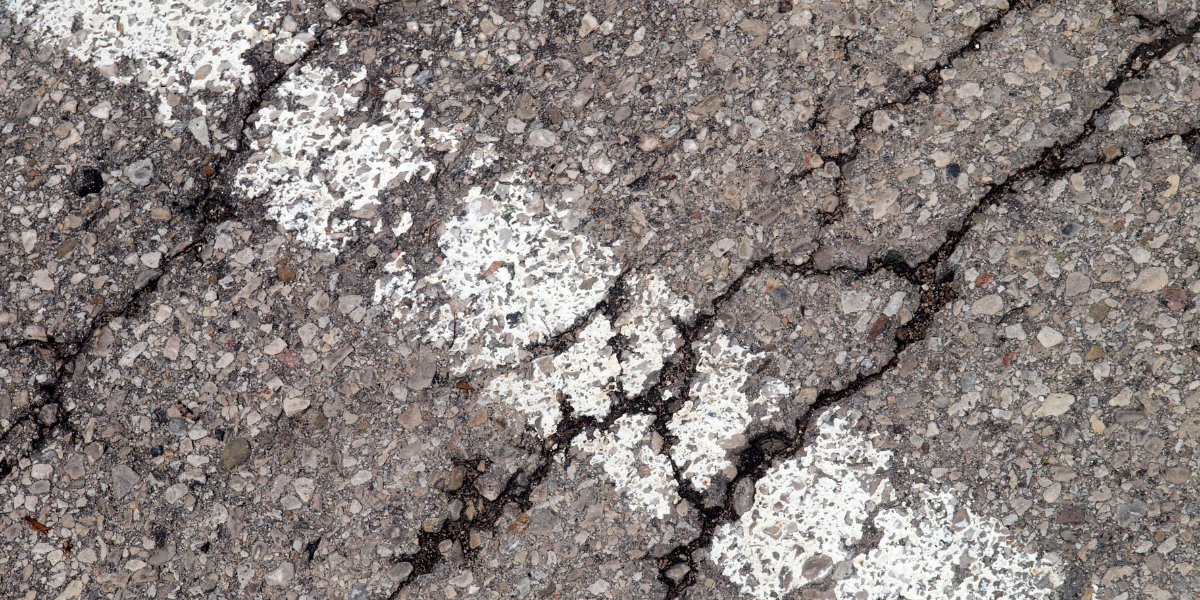Your parking lot is often the first impression customers have of your business. Cracked, uneven, or poorly maintained parking lots can deter visitors and create liability concerns. As a business owner, keeping your parking lot safe and visually appealing is critical for customer satisfaction and protecting your investment.
This guide covers everything you need to know about parking lot repair, from recognizing damage to choosing the right repair techniques.
How Often Do Parking Lots Typically Need to Be Repaired?
The frequency of parking lot repairs depends on several factors, including the quality of the original installation, the type and volume of traffic it endures, and how well it’s maintained. Generally, minor repairs like crack sealing or pothole filling should be addressed annually or as needed to prevent larger issues.
For more extensive repairs, such as concrete leveling, parking lots may need attention every 5-10 years, depending on the level of use and environmental conditions. Regular inspections and proactive maintenance can extend the lifespan of a parking lot and reduce repair costs over time.
Signs Your Parking Lot Needs Repairs
A well-maintained parking lot not only improves curb appeal but also reduces risks for pedestrians and vehicles. Here are some signs it’s time to schedule parking lot or sidewalk repairs:
- Cracks & potholes – Cracks can start small but grow over time, leading to potholes that damage vehicles and trip pedestrians.
- Drainage issues – Standing water after a rainstorm indicates poor drainage, which can erode the foundation and weaken the surface.
- Fading markings – Worn-out stripes and parking lines can make navigation confusing for customers and may not meet local regulations.
- Surface erosion – Loose gravel or crumbling edges suggest the parking lot’s surface needs reinforcement or replacement.
- Uneven surfaces – Sunken or raised areas in the parking lot can create safety hazards and signal foundational issues.
4 Common Causes of Parking Lot Damage
Common culprits of parking lot damage include:
1. Weather
Extreme heat causes asphalt to soften, leading to rutting and surface deterioration, while freeze-thaw cycles create expansion and contraction in the material, resulting in cracks. Heavy rain can erode the surface, wash away the base layer, and create pooling water, which weakens the structure and accelerates damage. Regular sealing and proper drainage can help mitigate weather-related issues.
2. Heavy Traffic
Commercial parking lots endure continuous use by vehicles ranging from small cars to heavy delivery trucks. Over time, the repeated stress on the surface causes cracks, dips, and settlement. High-traffic areas like entrances and exits are particularly prone to faster wear. Reinforcing high-stress zones and maintaining proper weight distribution can reduce long-term damage.
3. Poor Installation
If a parking lot is built on unstable soil or with low-quality materials, it will be more susceptible to cracks, potholes, and uneven settling. Insufficient compaction or improper drainage can exacerbate these problems, requiring costly repairs early in its lifespan.
This is why working with experienced contractors and ensuring quality control during installation is necessary.
4. Neglect
Minor issues like small cracks or debris build-up can quickly escalate if left unaddressed. Cracks allow water to seep into the foundation, weakening it over time. Debris accumulation blocks drainage systems and adds unnecessary stress to the surface.
Regular inspections, concrete repairs, and cleaning can prevent these minor issues from becoming major expenses.

Parking Lot Repair Techniques
The type of repair your parking lot needs depends on the extent of the damage. Here are the most common methods:
- Crack Sealing – For minor cracks, sealing prevents water from seeping into the foundation and causing further damage.
- Pothole Patching – Filling in potholes restores the surface and prevents accidents or additional erosion.
- Resurfacing – When wear is widespread, resurfacing the top layer can rejuvenate the parking lot without the need for a full replacement.
- Leveling & Lifting – Sunken areas can be lifted and leveled using advanced techniques like polyurethane foam injection. This stabilizes the foundation and restores the surface.
- Full Replacement – For parking lots with extensive damage or structural issues, replacing the surface and base may be necessary for a long-term fix.
Parking Lot Repair with Lifting and Leveling
Over time, parking lots may sink or settle due to soil erosion, compaction, or water intrusion beneath the surface. Parking lot lifting and leveling address these issues without the need for costly and time-consuming full replacement.
Using advanced techniques like polyurethane foam injection, professionals can lift sunken sections of the pavement and stabilize the underlying soil. This method is minimally invasive, fast-curing, and capable of supporting heavy commercial traffic within hours.
Partner with Leveled Concrete for Parking Lot Repair
Leveled Concrete is a trusted provider of innovative parking lot and driveway repair services in the Houston area. Specializing in lifting, leveling, and repairing concrete surfaces, we help homeowners and businesses restore safety, functionality, and curb appeal to their properties.
From driveways to parking lots and everything in between, our expert team delivers efficient, long-lasting results using techniques like polyurethane foam injection. At Leveled Concrete, we’re committed to offering honest pricing, exceptional service, and solutions tailored to your unique needs.

